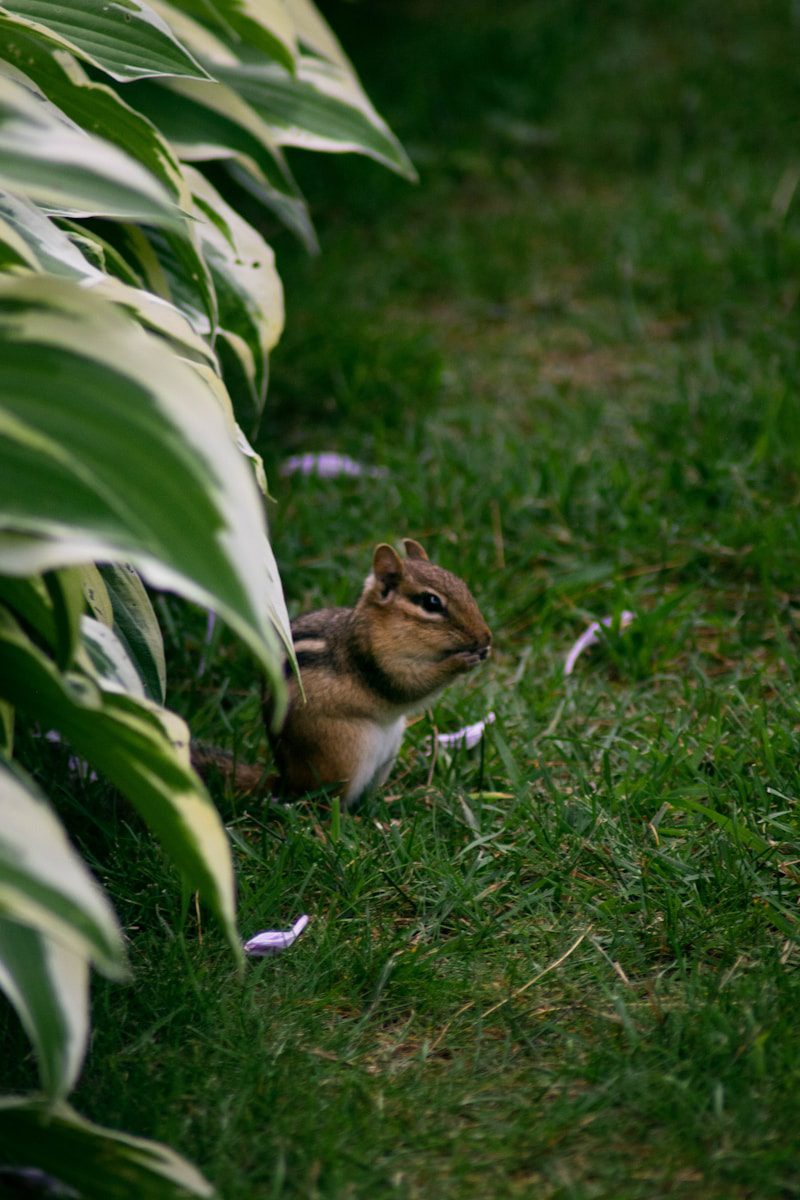A garden full of fresh blooms and ripening produce is a gift. But if you’ve spotted little tunnels, dug-up bulbs, or half-eaten fruit, you may have tiny striped visitors. Chipmunks, while adorable, can quickly become disruptive. They dig for seeds, snack on berries, and stash food in your beds. The good news is that we can keep them at bay without spoiling the beauty or peace of our garden.
Why Chipmunks Target Gardens
Chipmunks are opportunists. They forage constantly, looking for seeds, nuts, fruits, and young plants. Your garden offers all of these in one place. Loose soil is easy for them to dig, and low-growing plants are simple to reach. They don’t just take a little—they often uproot or damage plants in the process.
Understanding this habit helps us protect our spaces. Instead of seeing them as pests, we see them as hungry neighbors who need gentle boundaries.
Smart Ways to Protect Plants
Fencing and Barriers
A sturdy fence makes the biggest difference, but chipmunks are small and clever.
- Hardware cloth: Use ¼-inch mesh around raised beds and bury it 8–12 inches deep to block tunnels.
- Bulb cages: When planting tulips or other favorites, enclose bulbs in wire mesh so chipmunks can’t dig them up.
- Row covers: Lightweight fabric or mesh can shield seedlings until they’re strong enough to withstand some nibbles.
Natural Deterrents
Scents play a powerful role. Chipmunks dislike strong smells, so use that to your advantage.
- Garlic and hot pepper sprays: Apply around plants and soil. Reapply after rain.
- Predator scents: Products made with fox or coyote urine can create the illusion of danger.
- Herbs and flowers: Planting strong-scented companions like mint, daffodils, or alliums along borders helps discourage digging.
Motion and Surprise
Chipmunks don’t like surprises.
- Motion-activated sprinklers: A quick burst of water sends them running.
- Wind spinners or reflective tape: Sudden flashes and movement make the area feel unsafe.
- Ultrasonic devices: Some gardeners find success with these, though results vary.
Building Better Habits Around the Garden
Beyond barriers and sprays, your own habits can help reduce visits.
- Harvest often: Don’t leave fruit or vegetables to overripen—it attracts chipmunks.
- Clean up fallen produce: Any apples, berries, or seeds on the ground are an open invitation.
- Remove hiding spots: Chipmunks love brush piles, wood stacks, and tall grass. Keeping the garden edges clear reduces their comfort.
- Feeders with care: If you have bird feeders, use baffles and trays to minimize seed spills, which draw chipmunks closer.
Creating Balance With Wildlife
The goal is not to drive chipmunks away from nature. It’s to guide them away from your hard work. With smart fencing, natural repellents, and a little change in routine, you can protect your plants and still enjoy the life around you.
A garden is a shared space. When we learn how to set gentle boundaries, we get to enjoy ripe tomatoes, blooming flowers, and the peace of knowing our efforts will last. In the end, the balance between beauty and wildlife makes the garden even richer.

